- Home
- David Dalglish
Wrath of Lions Page 2
Wrath of Lions Read online
Page 2
“Stay hidden,” he told the children. Caleigh, her hand still firmly gripped in his, nodded her understanding.
They progressed along the forest’s boundary, using the copious overgrowth and piles of fallen limbs to keep out of sight. It felt strange to Oris that he should feel the need to take such precautions. Not very long ago, the sound of strangers within Erznia’s walls would have been cause for excitement. But all that had changed when Vulfram returned to the township to punish his own daughter. That horrid turn of events, coupled with the courier’s haunting message some months later, had caused the mood to shift. Now the presence of uninvited guests was a reason for fear.
Oris led his niece and nephew around the side of the manor, and the horror before him confirmed every misgiving. A legion of men in boiled black leather, decked out with pikes and swords, formed a row on either side of the beaten dirt road leading through the center of the settlement. Four flags of Karak fluttered on the bannermen’s poles at the front line. The surviving members of Oris’s family stood on the lawn of the manor, in the shadow of the peach tree to the left of the cobbled walk. Yenge stood front and center, her dark, curly hair cascading over shoulders that were thrown back in pride. Oris’s wife, Ebbe, was beside her, her normally tan skin a pale russet after long months of sparse sunlight, and their children, Conata and Zeppa, were huddled in her skirts, tears running down their cheeks. Oris’s heart went out to them. He wanted to run from his veil of twigs and leaves and gather them in his arms.
It was the sight of a man on horseback that stilled him. Naked and hairless, his skin looked as though it had been polished to a crystalline sheen. Yet muscles bulged and stretched beneath, as if they were too large and powerful for the shell that concealed them. A warhorn, the source of the baying Oris had heard, was cradled in his large hands. His eyes glowed an unnatural red, burning like the fires of the underworld, and the sight brought a lump to Oris’s throat. He then took in the naked man’s face—smooth and long, with a pointed chin and an upturned nose—and realized with horrible certainty who he was.
The former Highest, Clovis Crestwell. He looked inhuman; he was much larger than before, and he no longer had his long, silver hair. The Highest grinned, and it seemed as though he had grown extra teeth. Magister Muren Wentner, the decrepit old man responsible for upholding Karak’s law within the settlement, stepped out from the crowd that had gathered behind the row of soldiers. His billowing gray robe flowed around him, making him appear to be a skeleton swathed in a mound of moldy fabric. From the look on the old man’s face, Oris could tell Wentner too was shocked by Clovis’s strange appearance and unabashed nakedness.
“We are…grateful for your arrival, Master Crestwell,” Wentner said, falling to his knees before Clovis’s horse. “I wish I had known of your visit sooner, however, for I would have prepared a more…appropriate greeting.”
Clovis didn’t respond. He simply smiled that horrible, toothy smile.
Wentner shuffled on his knees, clearly uncomfortable.
“Er…what is the nature of your visit? Please tell me, so I can be of service.”
Without responding, Clovis dropped the warhorn and grabbed his horse’s reins. The horse stepped to the side of the road, appearing slightly agitated, as if frightened by its rider. A heavy cart approached between the two rows of soldiers, drawn by a pair of huge chargers. The townsfolk behind the soldiers gasped, but the contents of the cart were hidden from Oris’s view. Magister Wentner rose from the ground, hastily stepping out of the way. Once it reached the end of the line, the cart pulled to a stop, exposing its ghastly contents to all.
While Oris’s wife shrieked, lifting their children and backing away, Yenge seemed to be frozen in shock, the tight line of her lips and the twitch of her jaw the only signs of her distress. Oris was helpless to avert his eyes from the four bodies hanging from the slatted side of the cart—a woman and three young men. Even from a distance he could tell the corpses were in a terrible state, the decaying remnants covered with gashes and splashed with old blood. He recognized the tattered and bloody dress hanging from the carcass of the lone woman and the ruby-encrusted necklace Ulric had given Dimona on their wedding day.
The ball of terror that had built up in Oris’s gut broke apart, its fragments spreading waves of vigor through his limbs. His body shook and his mind raced, but still he did not move. Instead, he clamped his hand over Caleigh’s lips before a shriek could leave her throat, giving them away. He hoped Alexander had the good sense to still his tongue as well.
Out on the lawn, Clovis proudly marched his horse to the front of the cart.
“The traitors have been found and punished,” Clovis said. Oris cringed at the sound of his voice, which was so unlike Clovis’s. His tone still held the same gravelly quality, but there was something more there—it almost sounded as if two voices were speaking at once. “They have gone to the underworld to burn for eternity because of their sins against Karak’s glory.”
Caleigh began struggling, biting into Oris’s palm, but he refused to let go.
“Why have you done this?” pleaded Yenge, her voice cracking.
“Yes, why?” asked Magister Wentner. His pale gray eyes stared in disbelief, his usually cocksure manner rapidly deflating. “The wife and children of Ulric Mori did nothing to deserve this fate.”
The bald, naked man laughed, the sound assaulting the air like a wave of roaring flame.
“Did nothing, you say? The lady and her sons were heirs to a traitor and blasphemer, and they were set to follow in the footsteps of the one they called husband and father. They proved it when they attempted to flee west, into the arms of the bastard god who rules there.”
“But what of us?” asked Yenge, bravely stepping forward to meet Clovis’s burning red gaze. “Is our entire family considered as such? We have not fled. We have remained loyal to Karak despite our losses.”
Clovis’s sickening grin grew ever wider. “You have remained loyal, have you? Loyalty requires sacrifice, and you have sacrificed nothing. When your god asked for every able-bodied man to join the ranks of his army in preparation for the coming war, did you offer your son to the cause?” He turned in his saddle, addressing the townsfolk who had huddled in fear behind the soldiers. “Did any of you? Of all of Neldar’s provinces, Erznia stood alone in her defiance. Not a single young man has joined the holy ranks, not a single woman has offered her services as a seamstress or nursemaid. You all huddled in your guarded forest, living apart from the god who created you. You dare call this loyalty?” Clovis spat on the ground. Magister Wentner tried to argue but was quickly shouted down. “I think not. The Mori family has disgraced our Lord, as has every other soul within these walls. Karak is the God of Order, and his ways are fair. You have turned your backs on your god, and so he has turned his back on you. May you all find forgiveness in the afterlife…if forgiveness is to be had for such cowardly scum.”
At the Highest’s command, a row of archers stepped forward, leveled their bows, and fired on those standing on the manor’s lawn. Oris could only watch as pointed shafts buried themselves in his wife, Magister Wentner, and Yenge. Ebbe attempted to shield Conata and Zeppa with her own body, but arrow after arrow embedded in her back until she collapsed. Their daughters suffered the same fate; Zeppa, all of seven, received a bolt in the neck, and nine-year-old Conata was pierced through the back of the head as she attempted to flee. An agonized roar forced its way through Oris’s clenched lips, but it was drowned out by the bloodcurdling shrieks of the gathered crowd.
Still, Oris did not advance. Releasing Caleigh, he whirled around and grabbed Alexander by the shoulders. The young man’s eyes were rimmed with tears, and his body was quaking uncontrollably.
“Listen to me!” Oris shouted at him. “Leave now! Take your sister and go. Climb the wall and head east, across the river. Few live there, and there is a chance you might make it to the coast unharmed. Ask for favors—beg if you must—but stay alive. Do you understand?”<
br />
Alexander stared dumbly ahead.
“Do you understand?” he screamed, shaking the young man by the shoulders.
Slowly Alexander’s eyes came to focus on his, and he nodded his understanding. Oris pulled his nephew into a tight embrace, then removed the shortsword from Alexander’s belt.
“You won’t be needing this,” he said, handing over his own dagger in its stead. “It will only slow you down. The smaller the blade, the better. Now go.”
Alexander took the dagger in one hand, snatched Caleigh’s wrist with the other, and sprinted away. Oris watched them go, ignoring the clang of steel from the area beyond the wood as he waited until the two youngsters had distanced themselves before revealing himself.
He counted to twenty, grief and wrath causing him to bounce on his heels as he gripped the shortsword with both scarred hands. Then he turned sharply and barreled through the overgrowth. Twigs snapped and brittle branches slapped his disfigured face as he leapt out of cover and into the open.
It was a massacre. The soldiers had turned on the populace, murdering everyone in sight. Swords and pikes thrust again and again, the blood they spilled creating a pinkish fog. Oris saw Bracken Renson, a man he had known since childhood, have his head split down the middle by an ax. Carlotta Littleton, the woman who had been nursemaid to his children, was gutted by a spear, her body viciously kicked off the shaft once she ceased moving. A sparse few fought back, only to be overwhelmed by the soldiers who had superior training and weapons.
Bellowing like a wild beast, Oris forced his sore legs to carry him forward. Something sharp pierced his side, but he ignored the pain and kept running, his sword held high, his sights fixed on one man and one man only: Clovis Crestwell. The man’s gaze shifted to him, and those blazing red eyes widened with what looked to be excitement.
Clovis leapt off his horse, his naked body bulging with muscle, his evil grin growing larger and larger. His mouth seemed to open wider than was humanly possible. It looked hungry enough to swallow the whole world. But Oris didn’t care. A wider opening to plunge my sword through was all he thought as he lunged forward, the tip of his blade aiming for Clovis’s gaping maw. It was then that he saw the man’s teeth extending, growing outward, becoming sharp daggers.
He thrust with all his might, the shortsword plunging into the gaping maw with both hands. Clovis’s inhuman red eyes widened as the blade exited the back of his skull. His expression shifted, and his dagger-filled mouth snapped shut on Oris’s arms, tearing through flesh, tendon, and bone. Oris teetered backward, his arms severed just below the elbow, the stumps spurting blood. Clovis ripped the sword from his mouth as if it were naught but a splinter, then rushed forward, ramming its cutting edge into Oris’s gut and twisting until his insides spilled all over the ground. Oris lost feeling in his lower half and collapsed, the rest of him awash with white-hot pain. He knew the end was near, but he forced himself to roll over nonetheless, staring back toward the forest, hoping beyond hope that Alexander and Caleigh had escaped. These thoughts persisted even as claws ripped into his back, even as teeth tore into his neck, even as his own blood washed over his eyes, even as the screams of those dying all around him faded away, leaving him with nothing but the agony he felt in his every nerve as he was slowly devoured.
CHAPTER
1
The bodies hung from the top of the castle walls, their eyeless faces staring accusingly at any who passed below. There were six in all, swaying side by side in the frigid early spring breeze. Four had been gutted, and what remained of their innards was blackened with rot, a putrid substance that streamed down their bare legs and dripped from their toes. The area of the walk under them had long since been stained with the sap of their deaths.
The day’s light was fading fast, and Laurel Lawrence stood at the edge of the cobbled road in front of the Castle of the Lion, staring up at the corpses as she had been wont to do since the day they were hung. Though she had experienced much loss over her twenty-two years, she felt most hopeless when lingering in this spot. The bodies had lost their bloat long ago, and their most tender areas had become food for crows and parasites, but the long and bitterly cold winter had somewhat preserved them. Their flesh was gray and taut, stretched thinly over the bones beneath. Laurel could recognize the ghosts of the men and women they had once been: Ulric Mori, Veldaren’s Master-at-Arms; Vulfram, Ulric’s brother and former Lord Commander of the Army of Karak, found unworthy by the Final Judges; Ibis Mori, father of Ulric and Vulfram, the sculptor whose hands had crafted the statues of Karak that decorated the city; and finally, Ibis’s creator and wife, Soleh Mori, former Minister of Justice in Veldaren and matriarch of House Mori, the second family of Karak. At the end of the macabre line, someone had hung two additional bodies: Nessa DuTaureau, a child of the bastard western god, Ashhur, who had switched her loyalty to Karak, and her lover Crian, the son of Highest Crestwell. Their bodies had appeared a month previously, and Laurel was flabbergasted by their addition, for the doomed lovers had been publicly forgiven and accepted by Karak himself the night before their murder.
Despite their odd continued presence, it was the cracked and peeling face of Minister Mori, eerily lit by the torches below, that drew Laurel’s gaze. She had known the Minister in life, Soleh often taking the time to stop her in the great hall and share a few kind words. As one of three women of power within the castle, they’d shared a unique bond. “Men hold tight to the power they think they wield, but it is those who linger behind the curtain who hold the true power,” Soleh had told her once, a roguish gleam in her eye. “It is our duty to silently nurture that power, especially when men try to strip it from us or force us to play their game.”
It was a relationship Laurel had cherished.
Laurel shook her head. It had all gone wrong so quickly. She’d been there at Nessa DuTaureau’s baptism; she’d watched as the red-haired sprite kneeled before Karak in the great fountain, accepting his blessing. And the next evening she had witnessed Soleh’s horrified response when Highest Crestwell presented the butchered bodies of Nessa and Crian, accusing Vulfram of killing them. It was the last time she’d seen any of the Moris alive.
“Councilwoman,” a voice spoke from beside her.
She turned to see a guard standing there, his coiled black mop falling below his half helm, his hazel eyes shining through the gap in the visor, brimmed with moisture. Despite the horror of the wall and the strangeness of her visit to the castle, a rush of warmth filled Laurel’s belly.
“Captain Jenatt,” she whispered. Pulo Jenatt had been a member of Soleh Mori’s personal entourage before being named captain of the Palace Guard after the former captain, Malcolm Gregorian, was given his own vanguard in Karak’s new army. Each time Laurel visited the castle, Pulo joined her in offering his respects to the dead minister. They never spoke of their reverence publicly—it would be considered sacrilege to do so—but their silent bond brought them both a macabre sort of comfort.
“Your audience awaits,” Pulo said, stepping back. “Please follow me.”
They crossed beneath the portcullis, past a row of guards who stood sentry in the shadows of the twin onyx statues of leaping lions, and entered the courtyard. The three castle towers loomed above the grass, rising into the twilight gloom. The platform on which Minister Mori used to hold her daily sermons stood empty at a bend in the walkway, the boards soft and rotting.
Everywhere she looked there were women. Women selling other women fruit from a ramshackle stand, women juggling for coin, women shuffling snot-laden children out of Tower Servitude, women guiding horses to the stables, women begging for an audience with the king. It was an echo of what she saw each day as she made her way through the cold gray streets of the city. The only men to be seen were members of the City Watch or Palace Guard, the lowborn criminals whose torment of the city heightened with each passing day, those too old to be conscripted into Karak’s Army or rich enough to buy themselves out of service.
&nb
sp; The great door to Tower Honor was held open, and Pulo led her down the long corridor. The air was warm, and Laurel’s boots sunk into the plush carpet as she walked. She wished she could strip off her hardened leather waders and curl her toes in the carpet’s fibers. Comfort and warmth had become fleeting concepts over the last six months. They’d been replaced by the monotony of her daily treks to the castle to fulfill her duties as a member of the Council of Twelve, a collection of individuals from the various districts and townships within Neldar whose purpose was to advise King Eldrich. Laurel was the only female member of the Council, and by far the youngest. Her mother had given birth to fourteen children, seven of whom—all boys—had died before reaching the end of their first year. The only male child who grew to adulthood had perished two years earlier, when starving peasants fell on her family’s granaries with torches and pitchforks, demanding to be fed during an extended drought. Because she was the oldest surviving child and her father, Cornwall Lawrence, was suffering from the final stages of the Wasting, Laurel had been chosen to act as the court representative for her father’s sprawling settlement of Omnmount.
It wasn’t an easy task, truth be told. Even when she had the confidence to speak, her voice was rarely heard. Most of the men of the Council, when they weren’t ignoring her, levied her with disapproving glances. She tried to tell herself it was because she was young, but she knew better. Soleh Mori’s words often seeped into her thoughts: “Men hold tight to the power they think they wield, but it is those who linger behind the curtain who hold the true power.” The strongest reaction she had ever received was when she’d attended court in a firming corset and low-slung satin chemise. How their eyes had bulged then, and when she offered advice to the Council that day, saying that an extra tax should be levied against the farms in the southern agricultural belt, those owned by her own family, in light of the grain shortages caused by the brutal winter in the north, the motion had actually been put to a vote. It hadn’t passed, losing seven to five, but at least she’d been heard.

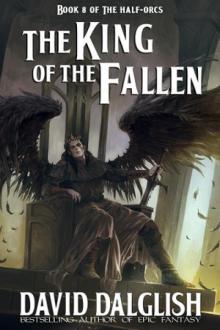 The King of the Fallen
The King of the Fallen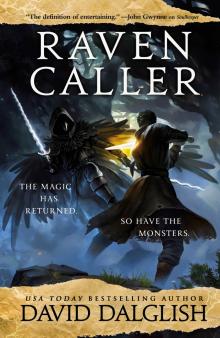 Ravencaller
Ravencaller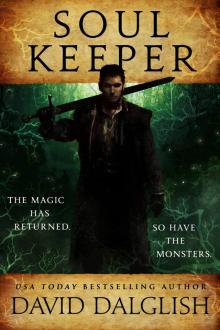 Soulkeeper
Soulkeeper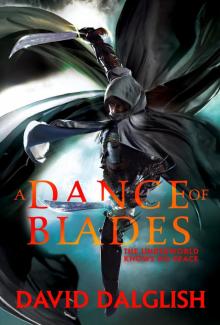 A Dance of Blades
A Dance of Blades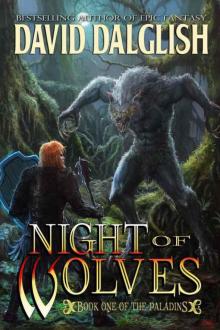 Night of Wolves p-1
Night of Wolves p-1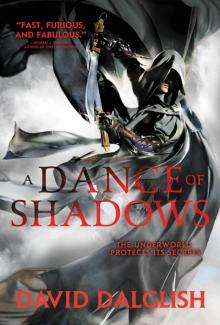 A Dance of Shadows
A Dance of Shadows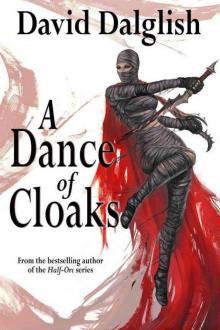 A Dance of Cloaks s-1
A Dance of Cloaks s-1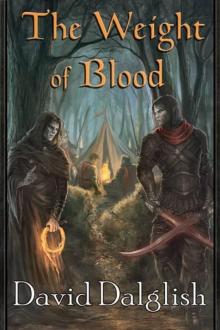 Weight of Blood
Weight of Blood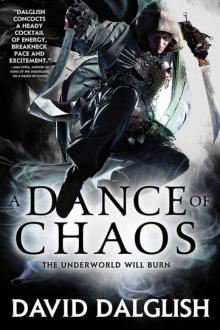 A Dance of Chaos
A Dance of Chaos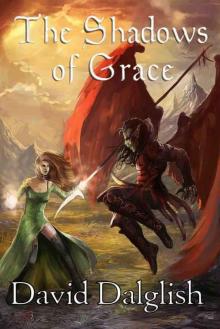 The Shadows of Grace h-4
The Shadows of Grace h-4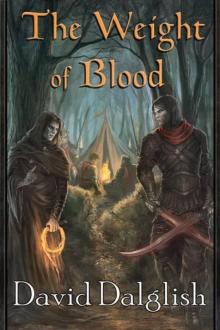 Weight of Blood h-1
Weight of Blood h-1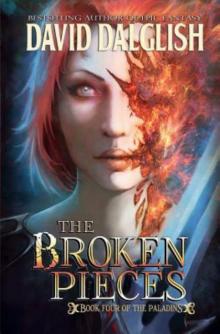 The Broken Pieces
The Broken Pieces The Shadowdance Trilogy
The Shadowdance Trilogy A Dance of Death (Shadowdance Trilogy, Book 3)
A Dance of Death (Shadowdance Trilogy, Book 3) Magic, Myth & Majesty: 7 Fantasy Novels
Magic, Myth & Majesty: 7 Fantasy Novels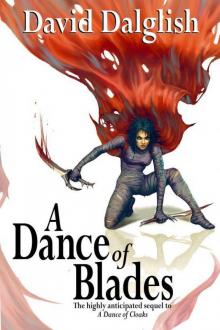 A Dance of Blades s-2
A Dance of Blades s-2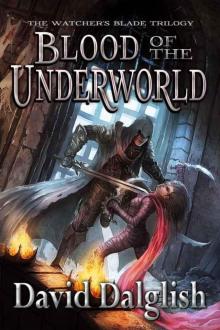 Blood of the Underworld
Blood of the Underworld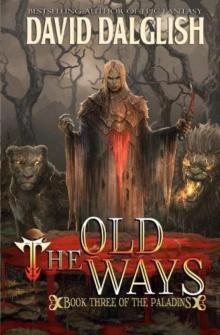 The Old Ways p-3
The Old Ways p-3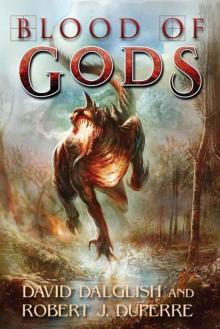 Blood Of Gods (Book 3)
Blood Of Gods (Book 3) Shadowborn
Shadowborn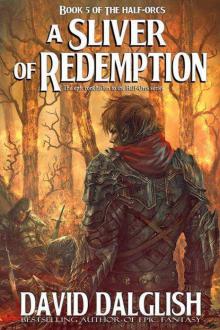 A Sliver of Redemption (Half-Orcs Book 5)
A Sliver of Redemption (Half-Orcs Book 5) Skyborn
Skyborn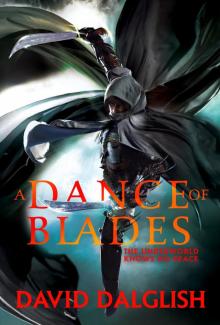 A Dance of Blades (Shadowdance 2)
A Dance of Blades (Shadowdance 2)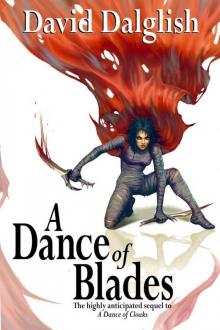 A Dance of Blades, (Shadowdance Trilogy, Book 2)
A Dance of Blades, (Shadowdance Trilogy, Book 2)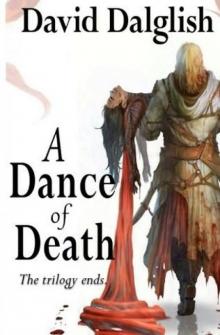 A Dance Of Death s-3
A Dance Of Death s-3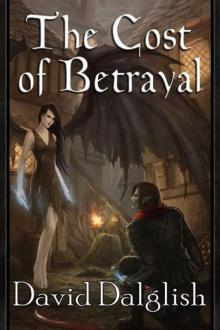 The Cost of Betrayal (Half-Orcs Book 2)
The Cost of Betrayal (Half-Orcs Book 2)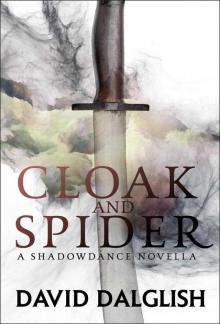 Cloak and Spider: A Shadowdance Novella
Cloak and Spider: A Shadowdance Novella The Paladins
The Paladins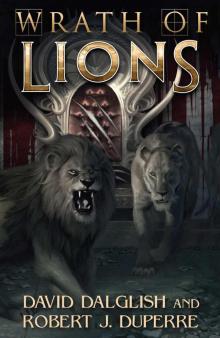 Wrath of Lions
Wrath of Lions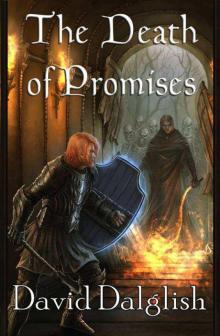 The Death of Promises (Half-Orcs Book 3)
The Death of Promises (Half-Orcs Book 3)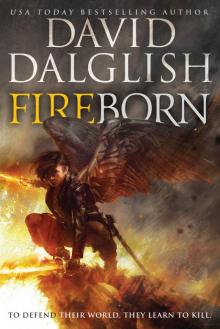 Fireborn
Fireborn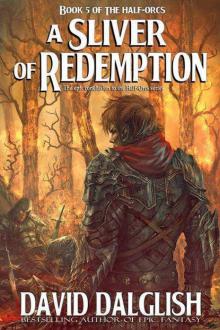 A Sliver of Redemption h-5
A Sliver of Redemption h-5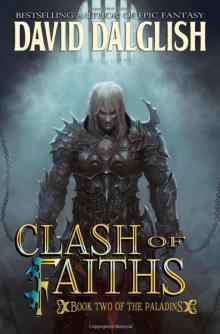 Paladins 02 - Clash of Faiths
Paladins 02 - Clash of Faiths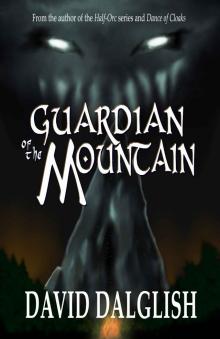 Guardian of the Mountain
Guardian of the Mountain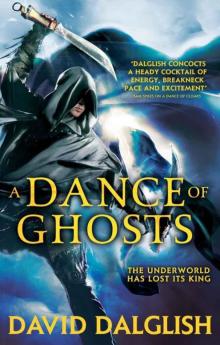 Shadowdance 05 - A Dance of Ghosts
Shadowdance 05 - A Dance of Ghosts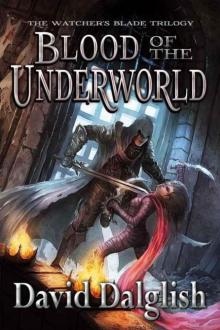 Blood of the Underworld twb-1
Blood of the Underworld twb-1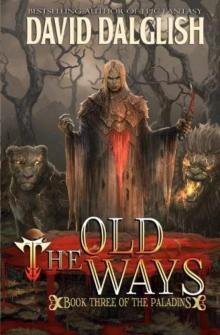 Paladins: Book 03 - The Old Ways
Paladins: Book 03 - The Old Ways Dawn of Swords
Dawn of Swords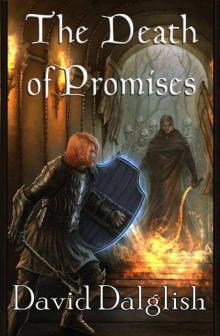 The Death of Promises h-3
The Death of Promises h-3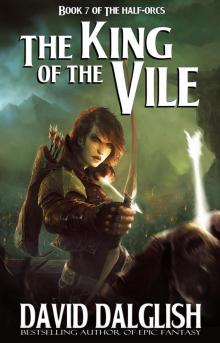 The King of the Vile
The King of the Vile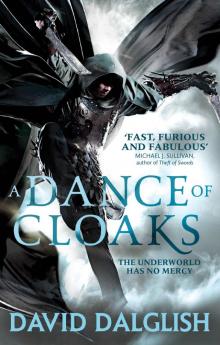 Shadowdance 01 - A Dance of Cloaks
Shadowdance 01 - A Dance of Cloaks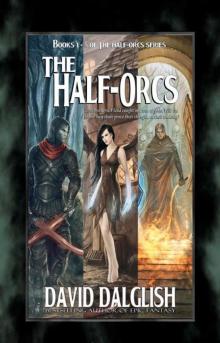 The Half-Orcs: Books 1-5
The Half-Orcs: Books 1-5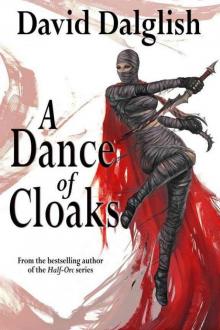 A Dance of Cloaks
A Dance of Cloaks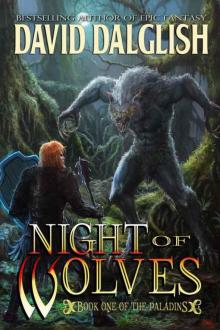 Paladins 01 - Night of Wolves
Paladins 01 - Night of Wolves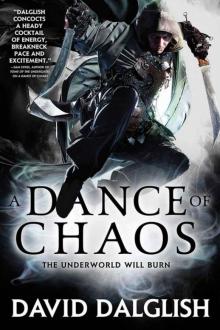 A Dance of Chaos: Book 6 of Shadowdance
A Dance of Chaos: Book 6 of Shadowdance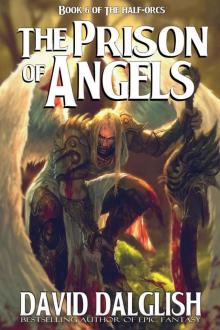 The Prison of Angels h-6
The Prison of Angels h-6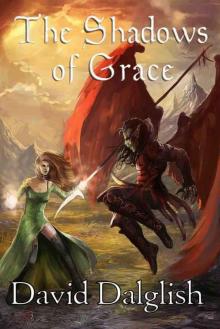 The Shadows of Grace (Half-Orcs Book 4)
The Shadows of Grace (Half-Orcs Book 4)